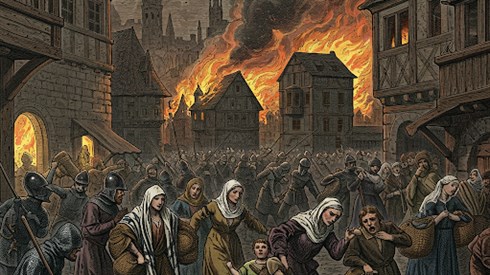Beit Midrash
- Sections
- Chemdat Yamim
- P'ninat Mishpat
81
Case: The plaintiffs (=pl) saw on a Chabad house’s (=def) site, a Pesach-vacation package: a hotel providing kosher-for-Pesach meals for 100 euro per person; Seder and day trips arranged by Chabad free of charge. Pl, who was returning to Israel before the seventh day of Pesach, wanted a switch of the order of trips so they would not miss one that interested them, and the rabbi agreed to accommodate. Pl has the following complaints: the hotel’s meals were sub-par, and kitniyot were served at one of them; two day trips, including the one that interested them, were cancelled. The rabbi was not at the Seder but was replaced by his brother. Pl are suing the Chabad house for 100 euro per member of the family. Def responds that vacationers do not pay them for anything, and they only receive a finder’s fee per guest from the hotel. Therefore, def is not responsible when things do not go as hoped for. The rabbi, who had an important personal reason to be elsewhere, is not obligated to always be present, and there was a qualified replacement.

P'ninat Mishpat (790)
Various Rabbis
475 - Was he or Was he Not the Lawyer? – part II
476 - A Sub-par Vacation Package
477 - Return of Rental Check
Load More
1. The hotel – def was an agent for the hotel, from which alone it received pay. Therefore, if pl has complaints, they should sue the hotel, just as one may not sue a real-estate agent when a seller deceives the buyer [unless the agent was involved in intentional deception].
2. Seder and trips – def was responsible without pay. When one offers services for free, he is allowed to quit even if he cannot be easily replaced (Shulchan Aruch, Choshen Mishpat 333:5, based on the Maharik). The Gra (ad loc. 35) explains that it is because in that case no employer-employee relationship exists. Additionally, even if relying on the offer caused a loss, the recipient should have taken into account that one who provides services for free can decide to stop them at any time, and he accepts the risk.
We do find that one who causes one to make a decision based on assurances he gave can be obligated to pay even if he is not paid (see Shulchan Aruch, CM 306:6 and Rama, CM 14:5). Some say that this is because of garmi (semi-direct damage) (Gra CM 306:16). Some say it is based on arev (accepting responsibility to one who extends himself due to another’s assurance, classically, when lending money based on a co-signer’s assurance). However, it is not possible to apply this here, as overall pl did not lose based on the assurances; he just did not gain as much as he had hoped. It is amazing that pl is suing for the entire amount he paid for the package, as if he received no benefit from the hotel and the services he received from the Chabad house.
Therefore, def is exempt from paying.

P'ninat Mishpat: Benefit from Unsolicited Efforts of the Plaintiff
based on appeal of ruling 82138 of the Eretz Hemdah-Gazit Rabbinical Courts
Beit Din Eretz Hemda - Gazit | Av 5785

P'ninat Mishpat: A Used Car with a Tendency Toward Engine Problems
based on appeal ruling 84034 of the Eretz Hemdah-Gazit Rabbinical Courts
Beit Din Eretz Hemda - Gazit | Av 5785

P'ninat Mishpat: Using Car that Was Supposed to be Returned
based on ruling 84065 of the Eretz Hemdah-Gazit Rabbinical Courts
Beit Din Eretz Hemda - Gazit | Av 5785

P'ninat Mishpat: End of Tenure of Development Company – part II
based on ruling 77097 of the Eretz Hemdah-Gazit Rabbinical Courts
Beit Din Eretz Hemda - Gazit | Tammuz 5785

Various Rabbis
Various Rabbis including those of of Yeshivat Bet El, such as Rabbi Chaim Katz, Rabbi Binyamin Bamberger and Rabbi Yitzchak Greenblat and others.

Responsibilities Based on Different Modes of Influence
Sivan 26 5777

Altercation with a Photographer – part I
Tammuz 9 5777

Sub-Par Guest House Experience? – part II
Tevet 12 5777





































